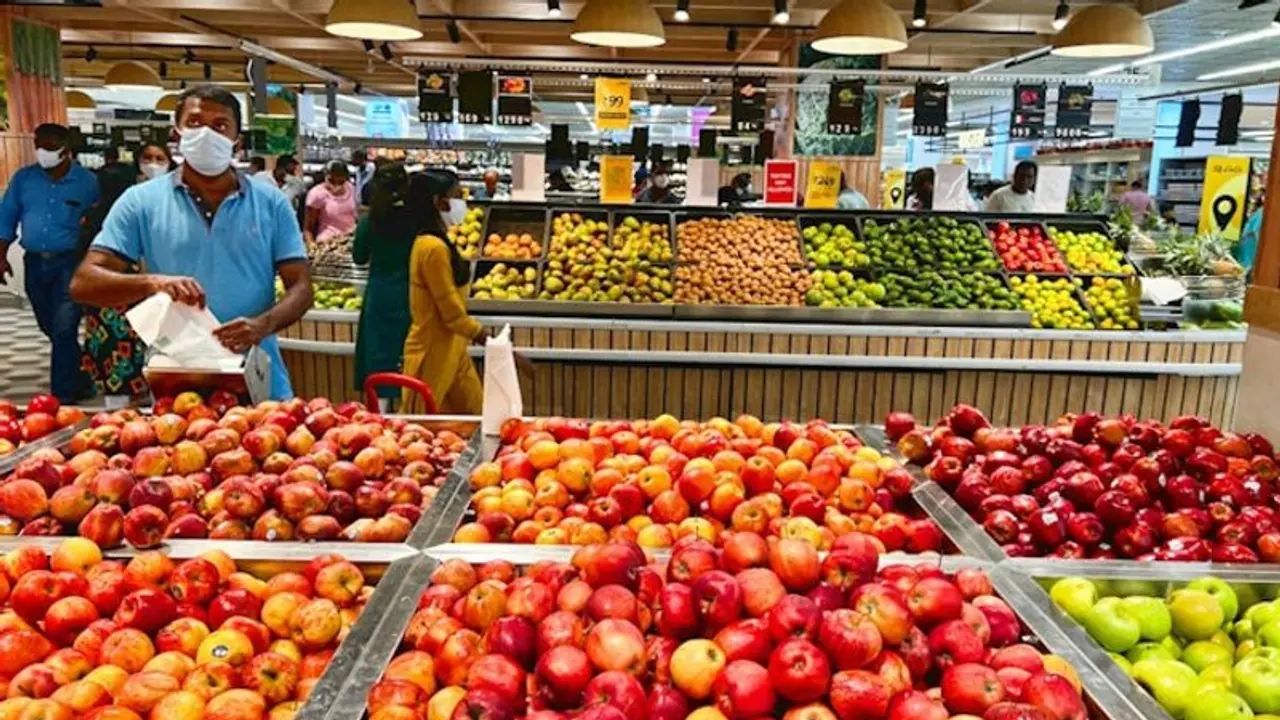Retail inflation dropped to 6.77 per cent in October from 7.41 per cent in the preceding month, mainly due to easing prices in the food basket,
Retail inflation moderated to 6.7 per cent in October, signalling a relaxing of the price situation, while the wholesale price index dropped to a 19-month low, primarily as a result of lower prices for food products.

The Reserve Bank, which has been working to lower retail inflation below the upper tolerance level of 6 per cent since January of this year, has also found some solace in the drop in consumer price index-based inflation to 6.77 per cent in October from 7.41 per cent in September. It hasn't been this low in three months for retail inflation.
Also read: IMF projection: Global growth at mere 2.7 per cent in 2023, India's at 6.1 per cent
The finance ministry claimed in a series of tweets that prices of commodities such as crude oil, iron ore, and steel fell on international markets. This, together with steps the Government took to rationalise the tariff structures of key inputs to increase domestic supply, assisted in containing cost-push inflation in consumer goods.
"Further, the Government has taken trade-related measures on wheat and rice to keep domestic supplies steady and curb the rise in prices. The impact of these measures is expected to be felt more significantly in the coming months," it said.
The mandate for the central bank is to maintain inflation at 4 per cent with a 2 per cent tolerance on each side. The RBI has delivered a report to the government on its failure to keep inflation below 6 per cent after failing to fulfil the target for three consecutive quarters.
According to National Statistical Office (NSO) CPI figures, retail inflation in the food basket was 7.01 per cent in October compared to 8.6 per cent the month before.
In addition, the statistics showed that yearly inflation in the segments of eggs, meat and fish, oil and fats, and "sugar and confectionary" was relatively low.
Also read: Salaries in India may see 10.4 per cent hike in 2023: Survey
According to the WPI data released by the ministry of commerce and industry, the decrease in October's inflation was primarily caused by lower prices for mineral oils, basic metals, and fabricated metal goods, with the exception of machinery and equipment, textiles, and other non-metallic mineral products.
For the fifth consecutive month, wholesale inflation fell. Dharmakirti Joshi, the chief economist at CRISIL, commented on the CPI data and said that due to the base effect and some sequential easing in cereal and pulse inflation, it was anticipated that the headline print would moderate.
"Going forward, we expect inflation to moderate on continuing base effect," he said.
Narinder Wadhwa, President of Commodity Participants Associations of India (CPAI) said the CPI at 6.77 per cent in October against 7.41 per cent in September indicates that "we have seen the peak in the index and going forward we can expect an easing of CPI and WPI numbers".
To combat stubbornly rising inflation, the Reserve Bank raised interest rates by 190 basis points from May to September, bringing them to 5.90%.
The Monetary Policy Committee (MPC), which is presided over by the RBI Governor, will meet again on December 5 to 7, 2022. The finance ministry added that the fall in prices of fruits, vegetables, pulses, oils, and fats significantly helped to reduce the rate of increase in food prices.
Also read: RBI's top priority is to tackle inflation: Governor Shaktikanta Das
To soften the prices of edible oils and pulses, tariffs on imported items have been rationalised from time to time and stock limits on edible oils maintained, to avoid hoarding, it added.
(With inputs from PTI)
